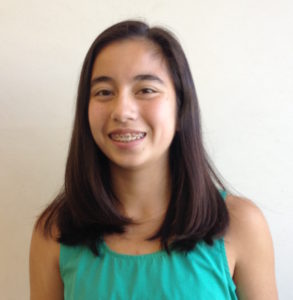The PT Online, this semester, is offering a series of articles about independent studies Lick students have created in the past two years. Independent studies are self-designed classes in which the student chooses a topic and faculty advisor, creates homework, a cumulative project, and class outlines.

PT Online: What’s the overall theme of your independent study, what are you focusing on?
Kate Chaloemtiarana: I did my independent study the first semester of last year; the official title was “Queer Music History.” Essentially I talked about what musicians in various musical industries have been out, and who hasn’t been out, since the 1800s. My thesis was that the more queer musicians that are open about their sexuality in the media, the more accepting the U.S. is towards LGBT identities.
PT Online: Who was your faculty advisor, and did you have a specific question you were trying to answer?
KC: My advisor was Ms. Stoddard, which was really helpful because she knew a lot of people in the industry, so I got to interview a few people. I talked a lot about Freddie Mercury and Elton John and how, I guess, they helped a lot with minimizing stigma against AIDS in the ‘80s — even though there was still a lot of stigma. The fact that they were open to talking about it helped a community grow together a little bit.
PT Online: What would a normal meeting look like, what kind of homework did you give yourself?
KC: My advisor and I met once a rotation, and I just recapped with her what I had done since we last met. It’s hard to say what kind of homework I assigned myself, since I did a midterm thing in the quarter break, when I wrote a paper on what I had done so far. My final project was a presentation to the directing class and the big band; teachers came too. There was a lot of going out and doing things. I went to the public library and talked to a lot of people there who helped me find a lot of resources. I interviewed a couple of people. The first out opera singer in the industry came to Lick, and I talked to her for about an hour. She was friends with Ms. Stoddard, and from the Bay Area, so I had that connection. Then, I talked to one of the first out composers, who’s also from the Bay Area. The interesting thing about the opera singer was that she didn’t feel like anything had changed. Something I was looking at is that acceptance is different across genres. The opera community completely doesn’t care. Rap community, really different, jazz community, really different. The jazz community — I looked at Billie Holliday, who was bisexual—
PT Online: Oh, I didn’t know even that.
KC: Exactly, you didn’t know that, because bisexual erasure was a big problem, and she was supposed to be, like, this feminine frontwoman, so it just wasn’t really acknowledged. I was looking at correlations between eras, gender, whatever. Since I got to choose what I studied, it was really motivating.
For opera, things were different — I was talking to this woman, her name is Christine Brandes; she talked about people in the industry with her, and how, even though she was the first out, no one really talked about it, and once they started talking they realized it wasn’t a big deal. That had a lot to do, I think, with the fact that opera is like acting, and men dress up as women all the time; there’s a lot of fluidity with gender expression. Whereas, with something like jazz in the 30’s and 40’s, it was very much like, the band would be made up of a ton of men who all played the instruments, and the women would be singing. I don’t think there are any famous (instrumental) female jazz musicians from that era. I was definitely looking a lot at gender, because there are definitely relationships there.
PT Online: Why did you ultimately decide to do an independent study, or why did you choose this topic specifically?
KC: I knew that I wanted to take another class, and I realized there weren’t many that stood out to me, and someone said “just do your own, then.” It was a really good decision to make, it was on my own schedule, I got to learn what I wanted to learn about.





